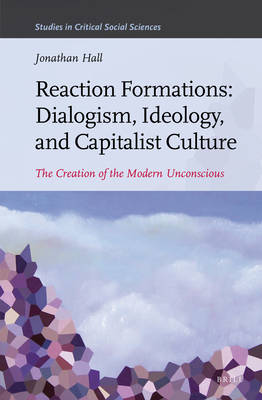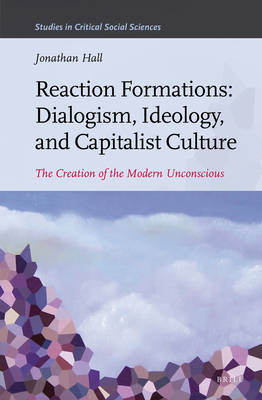
- Afhalen na 1 uur in een winkel met voorraad
- Gratis thuislevering in België vanaf € 30
- Ruim aanbod met 7 miljoen producten
- Afhalen na 1 uur in een winkel met voorraad
- Gratis thuislevering in België vanaf € 30
- Ruim aanbod met 7 miljoen producten
Zoeken
Reaction Formations: Dialogism, Ideology, and Capitalist Culture
The Creation of the Modern Unconscious
Jonathan Hall
€ 251,95
+ 503 punten
Omschrijving
Bakhtin and Voloshinov argued that dialogue is the intersubjective basis of consciousness, and of the creativity which makes historical changes in consciousness possible. The multiple dialogical relationships give every subject, who has developed through internalising them, the potential to distance him or herself from them. Consciousness is therefore an "unfinalised" process, always open to a possible future which would not merely reiterate the past. But this book explores its corollary: The relative openness is a field of conflict where rival discourses struggle for hegemony, by subordinating or eliminating their rivals. That is how the unconscious is created out of socio-historical conflicts. Hegemony is always incomplete, because there is always the possibility of a return of its repressed rivals in new combinations.
Specificaties
Betrokkenen
- Auteur(s):
- Uitgeverij:
Inhoud
- Aantal bladzijden:
- 296
- Taal:
- Engels
- Reeks:
- Reeksnummer:
- nr. 144
Eigenschappen
- Productcode (EAN):
- 9789004411647
- Verschijningsdatum:
- 22/08/2019
- Uitvoering:
- Hardcover
- Formaat:
- Genaaid
- Afmetingen:
- 160 mm x 236 mm
- Gewicht:
- 589 g

Alleen bij Standaard Boekhandel
+ 503 punten op je klantenkaart van Standaard Boekhandel
Beoordelingen
We publiceren alleen reviews die voldoen aan de voorwaarden voor reviews. Bekijk onze voorwaarden voor reviews.








